Denim shirts have long been a staple in both casual and semi-formal wardrobes, offering durability and timeless style. With countless brands striving to perfect their take on this classic piece, discerning between quality and style can be overwhelming. From boutique labels offering unique cuts and finishes to global fashion giants renowned for their consistent quality, the range of choices is vast. If you're on the hunt for the best denim shirts to add to your collection, take a look at our curated list of top denim shirt brands below.
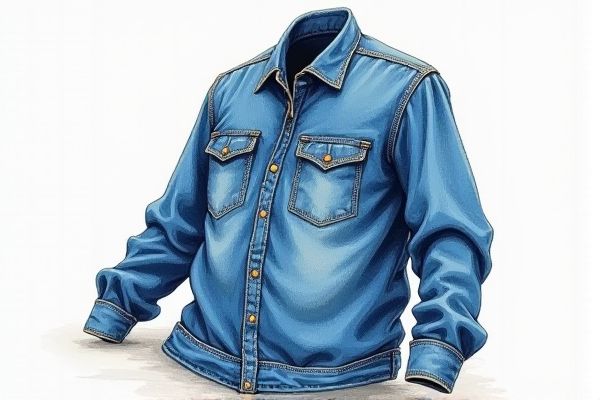
Illustration of denim shirts
Best brands of denim shirts in 2025
Levi's
Levi's is a leading producer of denim shirts, renowned for its high-quality and durable products. The Levi's brand, which is the No. 1 brand in denim globally, saw an 11% growth in net revenues in constant currency in FY22, with the iconic Levi's 501(r) fit growing nearly 30% that year. In the premium denim jeans market, Levi's focuses on sustainable development, aiming for zero discharge of hazardous waste and eco-friendly practices. As of Q3 2024, Levi's holds a market share of around 4.10% in the apparel, footwear, and accessories industry. The brand's strong performance is also reflected in its robust financials, with net sales of $6.048 billion in 2023, though this was a 7.76% decrease from the previous year.
Wrangler
Wrangler is a renowned American manufacturer of denim jeans and other clothing items, particularly known for its workwear and western-style jeans. Since its inception in 1947, Wrangler has innovated with designs such as the 13MWZ style, featuring felled outseams, rear pockets positioned for comfort in the saddle, and 'no scratch' rivet pocket reinforcement. The brand has a significant global presence, with revenues of approximately $1.75 billion in 2023, and it is recognized in 22 European countries. Wrangler's commitment to quality and innovation has made it a staple in the denim industry, with one of every five pairs of jeans sold in America being a Wrangler in 1996. The brand continues to support various rodeo and western events, reinforcing its deep roots in American heritage. For more details, visit their company page.
Lee
Lee, a heritage denim brand since 1889, is a prominent producer of denim shirts, leveraging its rich history and modern innovations to appeal to a new generation of consumers. The brand, owned by Kontoor Brands, accounts for 26% of the company's business, with Wrangler making up the remaining 64%. Lee's strategy includes niche collaborations and the launch of the Lee Archives, a capsule collection of vintage pieces, to capture the interest of Gen Z consumers who are fond of vintage and secondhand fashion. The global denim market, which includes denim shirts, is projected to grow from $77.18 billion in 2023 to $118.87 billion by 2031, driven by factors such as urbanization and the rise of e-commerce. Lee's focus on sustainability and ecological initiatives also aligns with the growing consumer demand for environmentally friendly products. For more information about their products and initiatives, visit Lee's official website.
G-Star RAW
G-Star RAW is a pioneering denim brand, renowned for its innovative and sustainable approach to denim production. Since its inception in 1989 in Amsterdam, the brand has consistently pushed the boundaries of denim culture, introducing untreated and raw denim, as well as 3D denim constructions. G-Star RAW has driven over 1.5 million clicks to its listings with a 16% year-over-year growth rate in clicks since its partnership with Yext began in December 2016. The brand manages over 370 stores across 39 countries and has seen a 19% year-over-year growth in website clicks and a 14% growth in direction clicks. G-Star RAW is committed to sustainability, exemplified by its 'Homegrown Denim' project using greenhouse-grown cotton. For more information, visit their official website.
Diesel
Diesel is a prominent player in the denim market, renowned for its high-quality denim shirts that combine style, comfort, and sustainability. The brand has seen significant interest, with approximately 9.6 million Google searches for Diesel jeans in the U.S. from May 2022 to April 2023. Diesel's commitment to eco-friendly practices, such as using organic cotton and water-saving techniques, aligns with the growing consumer demand for sustainable fashion. The brand's innovative designs and strong market presence contribute to its competitive edge in the highly competitive denim apparel market. With a global market projected to reach USD 112 billion by 2031, growing at a CAGR of 6.7%, Diesel is well-positioned to continue its success. For more details about their innovative denim products, visit their official website.
Calvin Klein
Calvin Klein is renowned as one of the leading producers of denim shirts, known for its modern, sophisticated styles and high-quality materials. The brand's retail sales share is significantly strong, with 49% of its sales coming from North America, 33% from Europe, and 16% from the Asia Pacific region as of 2020. In 2023, Calvin Klein, along with TOMMY HILFIGER, delivered strong financial performance, including high-single digit direct-to-consumer growth and expanded gross margins, highlighting the brand's strength in the marketplace. The brand's iconic denim and tees are favorites among consumers, offering comfort and versatility. Calvin Klein's engagement metrics also show strong consumer interaction, with an average visit duration of 2 minutes and 30 seconds on its top domains.
Tommy Hilfiger
Tommy Hilfiger is a leading brand in the denim market, with denim products currently accounting for 15% of its revenue, a figure expected to rise to 25% through innovative strategies. The brand has a rich history in denim, dating back to its founder's early days of selling jeans from his car in the late 1960s. Tommy Hilfiger's commitment to innovation, including eco-responsibility and circular business models, positions it for significant growth in the denim sector. By 2020, the brand aimed for 50% of its European products to have low environmental impact, reflecting its sustainability drive. With a global presence and over 2,000 retail stores, Tommy Hilfiger remains a major player in the fashion industry. For more insights, read about how innovation will help PVH grow its denim market share.
Ralph Lauren
Ralph Lauren is a renowned brand in the apparel industry, though it is not specifically highlighted as one of the best producers for denim shirts. However, the brand does offer high-quality clothing lines, including denim products, under various sub-brands such as Polo Ralph Lauren and RRL, which are known for their quality and aesthetic appeal. As of Q3 2024, Ralph Lauren reported a 6% increase in revenue to $1.9 billion, with global direct-to-consumer sales rising by 9% and average unit retail prices increasing by 9%. The brand's market share in the Apparel, Footwear & Accessories industry stands at 4.51% as of Q3 2024. Despite not being a specialist in denim, Ralph Lauren's commitment to quality and its diverse product lines contribute to its strong market presence.
American Eagle
American Eagle Outfitters is a leading producer of denim jeans, with the American Eagle segment contributing 63.89% to the company's total revenue as of 2023. The brand is known for its trendy and comfortable denim offerings, which have resonated well with customers, especially in the second quarter of 2023 when revenue exceeded expectations. American Eagle's global net revenue reached about $5.26 billion in 2023, highlighting its strong market presence. The brand's denim jeans are popular among men, who constitute the largest market share in the global denim jeans market. With a focus on both premium and affordable options, American Eagle caters to a wide range of consumers.
Gap
Gap Inc., although facing market share challenges, remains a significant player in the apparel industry, particularly in denim. As of Q3 2024, Gap Inc. holds an 11.70% market share in the retail apparel industry, and its brands, including Athleta and Old Navy, contribute to its overall market presence. However, Gap's share of the US apparel market has declined from 5.1% to 4.7% over the past five years, reflecting the competitive landscape and the rise of fast fashion retailers.










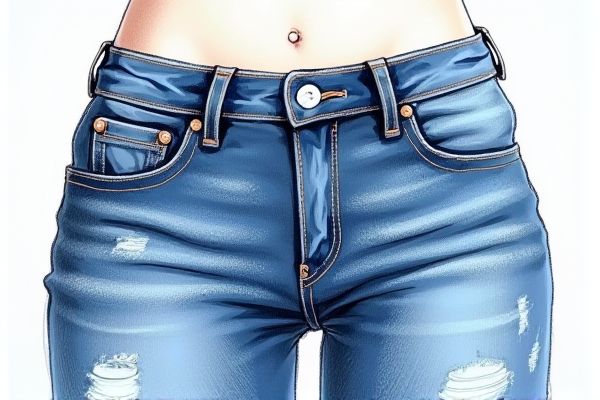
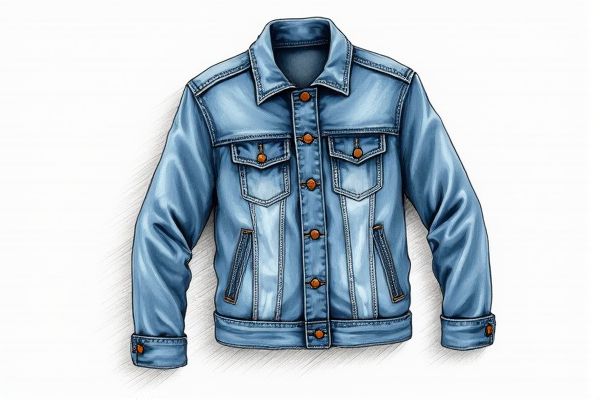
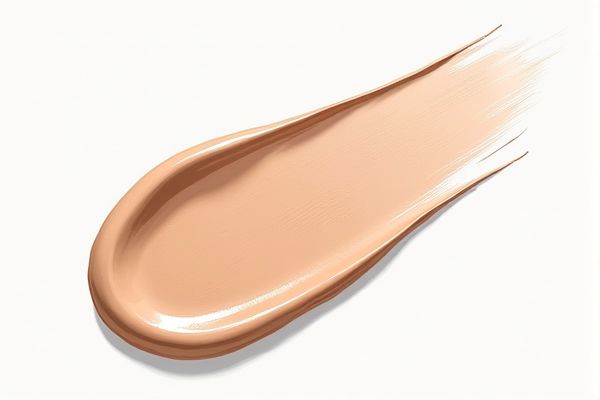

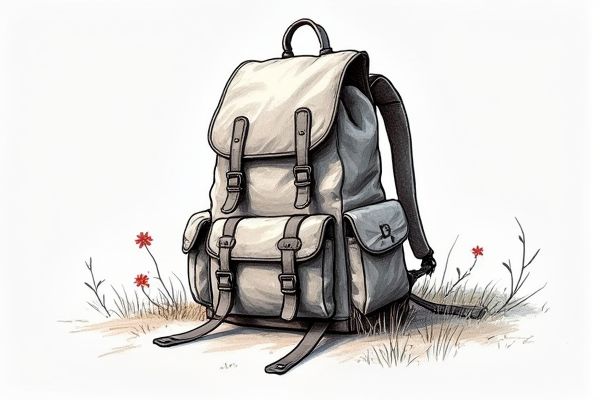
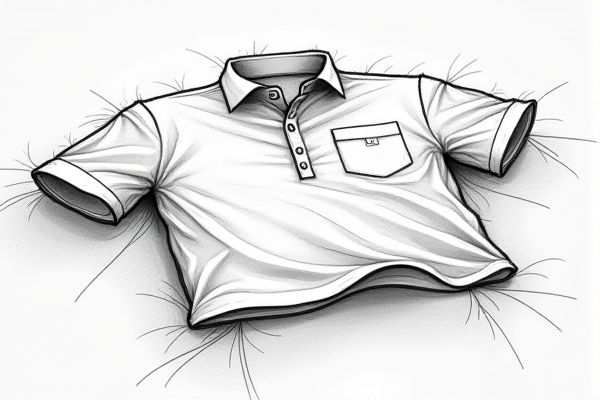
Leave a Reply
Your email address will not be published.